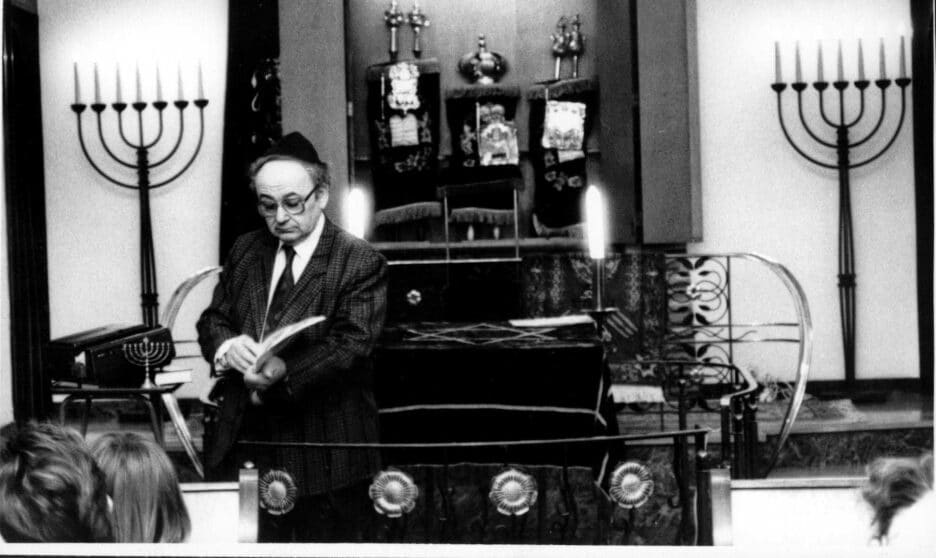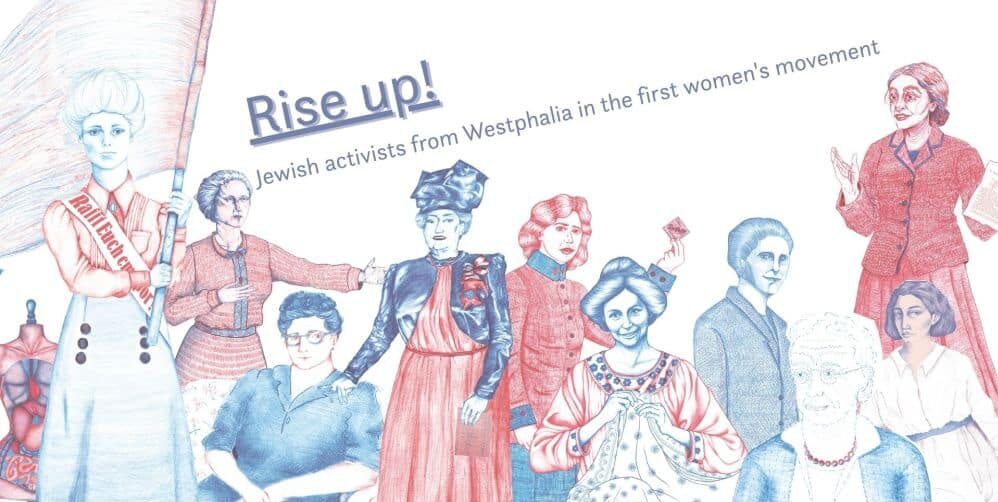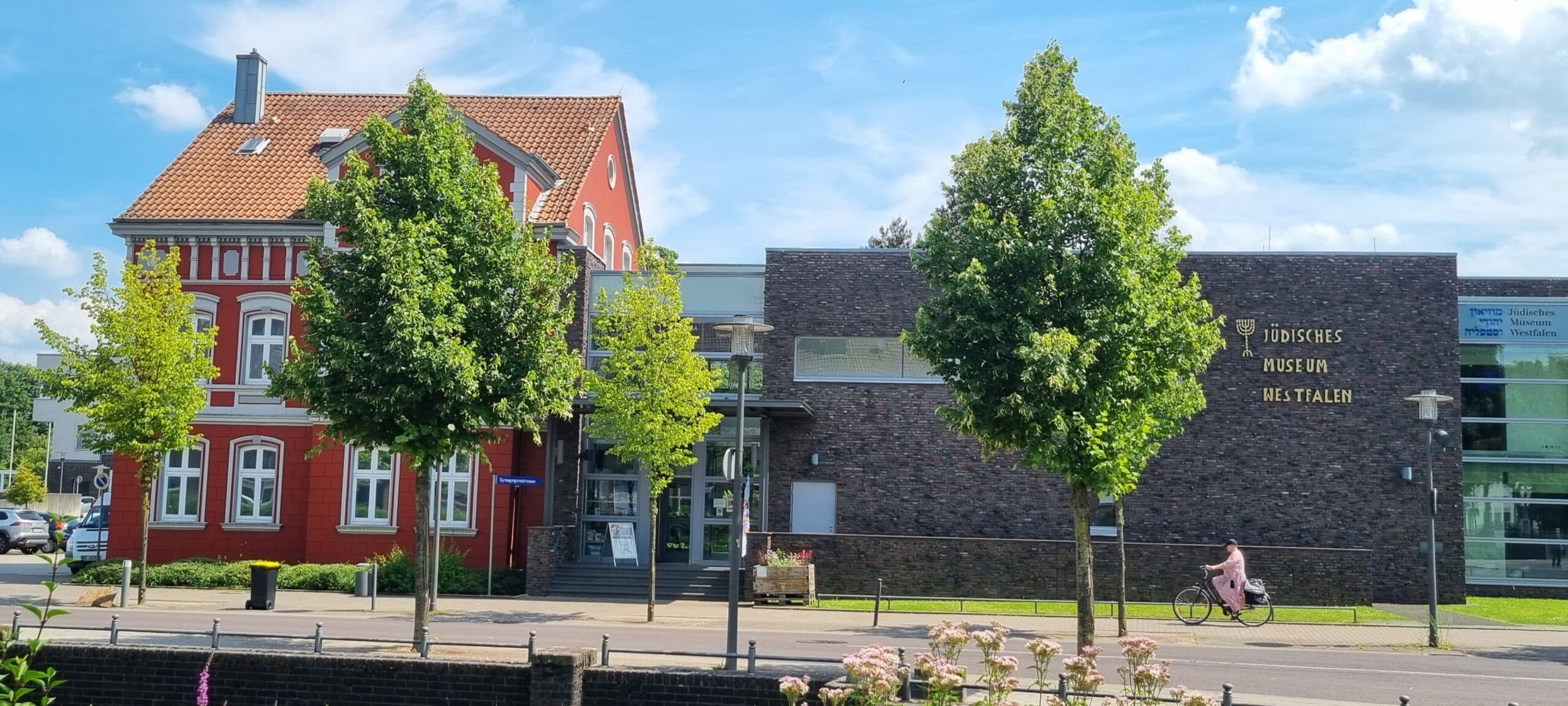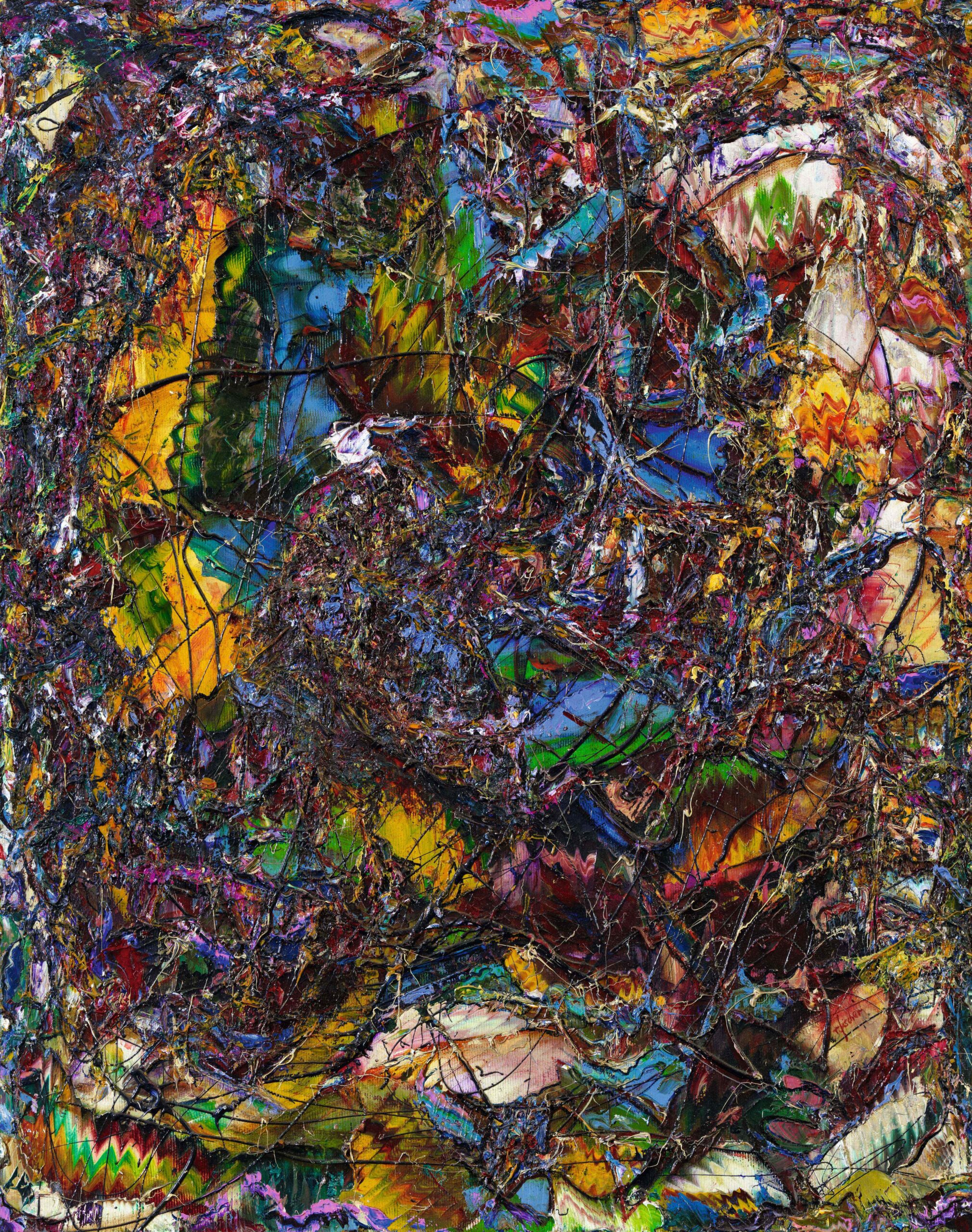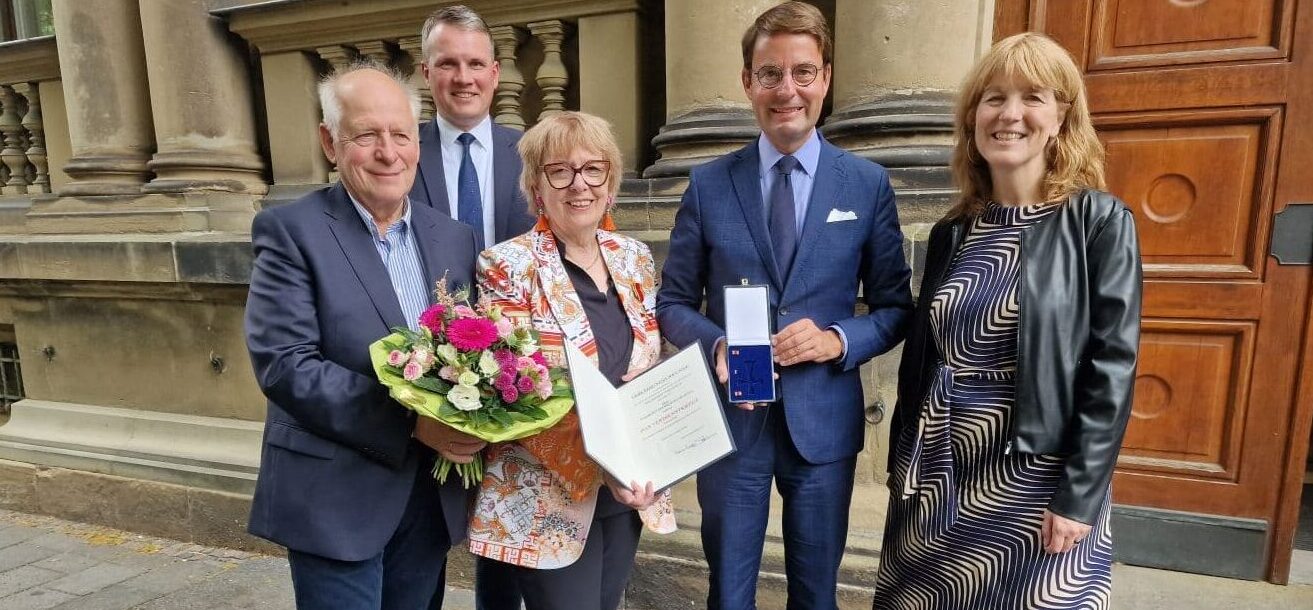

Rolf Abrahamsohn – (a) Jewish-German life in the 20th century
He would have turned 100 on March 9th this year: Rolf Abrahamsohn was born in Marl, survived several concentration camps, rebuilt his parents’ business after the war, and led the Jewish community in Recklinghausen for 14 years.
An exhibition at the Jewish Museum Westphalia celebrates the life of Rolf Abrahamsohn, who was extremely active in this region. Not only did he own a well-established textile and footwear store in Marl, but he also played a major role in the post-war Jewish community in Recklinghausen. Having returned to Marl after the war, Rolf Abrahamsohn engaged in the first services – not out of personal religious conviction, but to support the other survivors in the re-establishment of the Jewish community. In 1978, he even took the office of community leader, which he held for 14 years. In this function, he was responsible for the first “contingent refugees” arriving from the former Soviet Union in the early 1990s.
Furthermore, he also took a substantial part in the regional culture of remembrance and commemoration. Together with the other survivors he established the first remembrance days and a memorial in Recklinghausen. When interest in the Shoa survivors rose in the 1980s, he began talking to students about his survival of several concentration camps. Over the years, he gave countless talks, even though they strained him very much. Thus, when Rolf Abrahamsohn passed in 2021, he had left a significant mark in this region, visible not only in institutions of memory culture but also in letters written by students reaching out to him after having heard his testimony.
The exhibition presents not only personal photographs and objects, but also several sequences of interviews with Rolf Abrahamsohn. Embedded in the historical context information of the exhibition, his statements offer a personal insight into his life. Interactive stations invite visitors to reflect critically on the terrors of the Shoa, but also on aspects like “Wiedergutmachung” (i.e. reparation and compensation) or the impact and future of eyewitness testimonies.
Rolf Abrahamsohn has experienced and in parts formed many of the milestones of Jewish-German life in the 20th century: the integration at the beginning of the century, the Shoah, the process of rebuilding after the war as well as the arrival of refugees from the former Soviet Union in the early 1990s. The exhibition, therefore, informs visitors on the larger developments of Jewish life in Germany through the lens of a personal biography.
